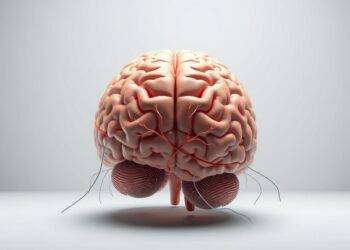“The curious paradox is that when I accept myself just as I am, then I can change.” – Carl Rogers
Self-monitoring is not about judgment or self-criticism. It’s about accepting and understanding yourself so that you can grow and evolve into the best version of yourself.
By observing and recording your behaviors, thoughts, and emotions without judgment, you gain valuable insights into your inner world. This practice of self-awareness paves the way for personal growth and the development of lifelong self-regulation skills.
- Self-monitoring is the practice of observing and recording one’s behaviors, thoughts, and emotions without judgment.
- Self-monitoring increases self-awareness, facilitates behavioral change, aids in emotion regulation, and supports goal achievement.
- By actively tracking your actions and reactions, you gain valuable insights into your inner world and understand what makes you tick.
- Embracing self-monitoring allows you to navigate life with greater clarity, purpose, and joy.
- Start your self-monitoring journey today and unlock your potential for personal growth and self-improvement.
What is Self-Monitoring?
Self-monitoring is a powerful tool for self-awareness and personal growth. It involves observing and recording your behaviors, thoughts, and emotions. By actively tracking your actions and reactions, you can gain valuable insights into your inner world.
Self-monitoring allows you to recognize patterns, triggers, and habits that may have gone unnoticed. It enables you to understand what makes you tick and how you respond to different situations.
By engaging in self-reflection and emotional recognition, you can make positive changes and improve yourself.
Through self-monitoring, you become more aware of your behaviors, thought patterns, and emotional responses. This awareness empowers you to develop a deeper understanding of yourself and make informed choices. It is a key step in the journey of self-improvement and personal transformation.
“To know oneself is to study oneself in action with another person.” – Bruce Lee
Embracing self-monitoring allows you to take control of your personal growth. It helps you identify areas for improvement and supports you in building self-regulation skills.
By observing your behaviors, thought patterns, and emotional reactions, you can make conscious changes and foster positive habits.
Self-monitoring is also a valuable tool for enhancing your emotional intelligence. Recognizing and understanding your emotions enables you to navigate them effectively and develop healthy coping mechanisms.
It empowers you to respond to challenging situations in a balanced and constructive manner.
The Power of Observation
Self-monitoring is rooted in the power of observation. By observing yourself without judgment, you can gain valuable insights into your thoughts, behaviors, and emotions. This awareness empowers you to make proactive choices that align with your values and aspirations.
Through self-monitoring, you can:
- Recognize recurring patterns in your behaviors and thought processes
- Identify triggers that influence your emotions and reactions
- Pinpoint habits that support or hinder your personal growth
- Develop strategies to overcome challenges and cultivate positive change
The Role of Emotional Intelligence
Emotional recognition is a fundamental aspect of self-monitoring. By understanding and acknowledging your emotions, you can develop emotional intelligence and strengthen your relationships with others.
When you practice self-monitoring, you can:
- Recognize the connection between your thoughts, emotions, and behaviors
- Become more aware of your emotional triggers and patterns
- Manage and regulate your emotions in a healthy and constructive way
- Foster empathy and understanding in your interactions with others
Developing self-monitoring skills allows you to create a positive feedback loop of self-awareness, personal growth, and improved emotional well-being. By continually observing and reflecting on your thoughts, behaviors, and emotions, you can gain a deeper understanding of yourself and unlock your full potential.
Why Embrace Self-Monitoring?
Embracing self-monitoring offers numerous benefits. It increases self-awareness by actively tracking our behaviors and emotions. Through this practice, we gain valuable insights into our inner world and understand what drives our actions.
Self-monitoring enables us to identify unhelpful behaviors and provides the foundation for behavioral change. By observing ourselves without judgment, we can make conscious choices to improve and grow.
Self-monitoring also plays a crucial role in emotion regulation. By tracking our emotions and their triggers, we can better understand and manage our feelings. This leads to enhanced emotional well-being and healthier relationships with ourselves and others.
Moreover, self-monitoring brings clarity and purpose to goal achievement. Whether it’s striving for physical fitness, increasing productivity, or fostering personal growth, self-monitoring provides the roadmap to success.
By tracking our progress and identifying areas of improvement, we can make targeted efforts and stay motivated on our journey.
Benefits of Self-Monitoring
- Increased self-awareness: Self-monitoring allows you to gain a deeper understanding of your thoughts, behaviors, and emotions.
- Facilitates behavior change: By observing and tracking your actions and reactions, you can identify patterns and implement positive changes.
- Aids in emotion regulation: Self-monitoring helps you recognize and manage your feelings, leading to greater emotional well-being.
- Supports goal achievement: By actively tracking your progress, you can stay focused, motivated, and aligned with your goals.

Embracing self-monitoring allows you to unlock the power within yourself. It’s a journey of self-discovery, personal growth, and self-improvement. By becoming more self-aware, regulating your behavior and emotions, and staying on track towards your goals, you can create a life of fulfillment and success.
How to Begin Your Self-Monitoring Journey
To embark on your self-monitoring journey, it is essential to start with a clear focus area. Identify a specific behavior, emotion, or thought pattern that you want to observe and track.
This could be related to your diet, spending habits, emotional responses, or even negative thoughts that impact your well-being.
Once you have determined your focus area, the next step is to select a suitable tracking method. There are various options available based on your preference and convenience.
You can choose to maintain a diary to jot down your observations, use a mobile app specifically designed for self-monitoring, or even record voice notes to capture your thoughts and experiences.
After collecting data through consistent self-monitoring, it is crucial to set aside dedicated reflection time. Use this time to review your observations, identify patterns, and gain valuable insights into your behavior, emotions, and thought processes. Reflection allows you to connect the dots and gain a deeper understanding of yourself.
Moreover, seeking feedback from trusted individuals can provide different perspectives and further enrich your self-monitoring experience. It allows you to gain insights and suggestions from others, helping you uncover blind spots and make more informed decisions.
Feedback empowers you to continue evolving and improving on your self-monitoring journey.
Remember, self-monitoring is a personal and empowering practice. It enables you to become more aware of your actions, thoughts, and emotions, leading to personal growth and self-improvement.
The Potential Challenges of Self-Monitoring
While self-monitoring offers numerous benefits, it’s important to be aware of the potential challenges that may arise along the way. These challenges can hinder your progress and impact the effectiveness of your self-monitoring practice.
By understanding these challenges and preparing for them, you can navigate your self-monitoring journey with greater ease and success.
1. Over-Obsession
One common challenge in self-monitoring is over-obsession. As you become more aware of your behaviors, thoughts, and emotions, there is a risk of becoming overly focused on tracking every detail.
This over-obsession can lead to unnecessary stress and anxiety, detracting from the true purpose of self-monitoring.
To overcome over-obsession, it’s important to maintain a balanced approach. Remember that self-monitoring is about gaining insights and understanding, not about micromanaging every aspect of your life. Allow yourself to observe without judgment, and focus on the most significant aspects that align with your goals.
2. Data Overwhelm
In the age of wearable technology and tracking apps, there is an abundance of data available for self-monitoring. However, this can lead to data overwhelm, where the sheer volume of information becomes overwhelming and difficult to manage.
To avoid data overwhelm, prioritize the data that is most meaningful and genuinely helpful for your self-monitoring goals. Focus on key metrics and patterns that provide valuable insights and avoid getting caught up in tracking every single data point. Quality over quantity is key when it comes to self-monitoring.
3. Unrealistic Expectations
Another challenge in self-monitoring is setting unrealistic expectations. It’s easy to fall into the trap of expecting immediate and significant transformations as a result of self-monitoring. However, personal growth is a gradual process that takes time and effort.
Instead of expecting overnight changes, celebrate the small insights and progress you make along the way. Remember that self-monitoring is a tool for self-improvement and long-term development.
By setting realistic expectations and acknowledging the small victories, you can stay motivated and maintain a positive mindset throughout your self-monitoring journey.
“Self-monitoring is not about perfection; it’s about progress. Embrace the small insights and changes, for they lay the foundation for lasting transformation.”
By being aware of these potential challenges and taking proactive steps to address them, you can overcome obstacles and maximize the benefits of self-monitoring.
Remember that self-monitoring is a valuable tool for personal growth and self-improvement, and with the right mindset and approach, you can navigate any challenges that come your way.
All that’s left is to equip yourself with practical tips and strategies to begin your self-monitoring journey. In the next section, we’ll explore how you can get started and make the most out of your self-monitoring practice.
The Importance of Self-Monitoring for Neurodivergent Individuals
Self-monitoring is an invaluable practice for neurodivergent individuals, offering the opportunity for self-observation and a deeper understanding of their unique cognitive processes and experiences.
By engaging in self-monitoring, neurodivergent individuals can navigate their thoughts, behaviors, and emotions with heightened awareness, empowering them to enhance self-control and build more effective interpersonal interactions.
One of the key benefits of self-monitoring for neurodivergent individuals is the ability to identify their strengths and weaknesses.
Through careful observation and reflection, they can gain insights into their own abilities and challenges, enabling them to better manage difficult situations and leverage their talents for personal growth and development.
Self-monitoring serves as a powerful tool for self-improvement, allowing neurodivergent individuals to build self-awareness and develop strategies to address areas of improvement.
By actively observing their behaviors and emotions, they can gain valuable self-insight and work towards enhancing their strengths while managing their weaknesses.
Embracing self-monitoring provides neurodivergent individuals with the opportunity to optimize their personal growth journey. It allows for a deeper understanding of oneself and facilitates the exploration of effective coping mechanisms and self-regulation strategies.
Through careful observation, neurodivergent individuals can enhance their self-control, leading to improved emotional well-being and overall quality of life.
| Benefits of Self-Monitoring for Neurodivergent Individuals | How It Facilitates Personal Growth and Self-Improvement |
|---|---|
| 1. Increased self-awareness | 1. Understanding individual strengths and weaknesses |
| 2. Enhanced self-control | 2. Developing strategies for self-regulation |
| 3. Improved interpersonal interactions | 3. Leveraging strengths for personal growth |
| 4. Effective management of challenges | 4. Optimizing emotional well-being |
Self-monitoring is particularly crucial for neurodivergent individuals in fostering self-acceptance and embracing their unique qualities. It empowers them to navigate their personal journey with confidence and harness their potential for personal growth and self-improvement.

A Testimonial on the Power of Self-Monitoring
“Self-monitoring has been a transformative practice for me as a neurodivergent individual. It has allowed me to gain a deeper understanding of my thoughts, behaviors, and emotions.
By observing myself without judgment, I have been able to identify my strengths and weaknesses, enabling me to make intentional changes and navigate life with greater self-control.
Self-monitoring has been an invaluable tool for my personal growth and has given me the confidence to embrace my neurodivergent identity.” – Sarah Thompson
The Benefits of Self-Observation and Experimentation
Self-observation and experimentation are powerful tools that can ignite personal change and build resiliency. By engaging in self-examination, you have the opportunity to identify negative patterns and break free from them.
This process allows you to understand the impact of your thoughts, feelings, and actions on your life, empowering you to make intentional changes and foster personal growth.
Through self-observation, you gain a deeper understanding of yourself, uncovering hidden beliefs and motivations. This awareness serves as a catalyst for transformation, enabling you to align your actions with your true desires and values.
It allows you to shed light on areas of your life that may require adjustment, leading to meaningful and lasting change.
Experimentation complements self-observation by providing a framework for testing different approaches and strategies. It encourages you to step out of your comfort zone, explore new possibilities, and take calculated risks.
By experimenting with alternative behaviors, thoughts, or perspectives, you can gain valuable insights and refine your path towards personal growth.
Embracing self-experimentation builds your resiliency. It teaches you that failure is not an endpoint, but rather an opportunity for learning and growth. Through trial and error, you discover what works best for you, develop problem-solving skills, and build confidence in your ability to navigate life’s challenges.
Self-observation and experimentation grant you the power to shape your own journey of personal change. By embracing these practices, you cultivate self-awareness, self-improvement, and the resilience to overcome obstacles. With each step forward, you become the architect of your own transformation.
Self-Observation and Experimentation in Action:
“The real voyage of discovery consists not in seeking new landscapes, but in having new eyes.” – Marcel Proust
Let’s illustrate the benefits of self-observation and experimentation with a practical example. Consider a situation where you often find yourself becoming overwhelmed with stress.
Through self-observation, you begin to notice specific triggers, such as a heavy workload or unrealistic expectations you place on yourself.
With this newfound awareness, you decide to experiment with different strategies to manage stress more effectively. You try techniques like deep breathing exercises, time management, and seeking support from trusted individuals.
Through this experimentation, you discover that incorporating regular exercise into your routine significantly reduces stress levels and improves your overall well-being.
By continuously observing and experimenting, you cultivate resilience and refine your strategies, resulting in positive personal change. Over time, you develop a set of personalized tools and techniques that empower you to navigate challenges with greater ease and transform your life.
Conclusion
Self-monitoring is a powerful tool for personal growth and self-discovery. By actively observing and tracking your behaviors, thoughts, and emotions, you gain valuable insights into yourself and develop lifelong self-regulation skills.
This practice increases self-awareness, facilitates behavioral change, aids in emotion regulation, and supports goal achievement.
Embracing self-monitoring allows you to navigate life with greater clarity, purpose, and joy. It empowers you to understand what drives your actions and how you can improve. Through self-monitoring, you embark on a journey of self-discovery, uncovering your strengths, weaknesses, patterns, and triggers.
Start your self-monitoring journey today and unlock your potential for personal growth and self-improvement. By embracing the power of self-monitoring, you can transform your life, nurture your relationships, and achieve your goals.
Remember, the path to self-improvement begins with self-awareness, and self-monitoring is your key to unlocking a fulfilling and meaningful life.
FAQ
What is self-monitoring?
Self-monitoring is the practice of observing and recording one’s behaviors, thoughts, and emotions without judgment.
Why is self-monitoring important for personal growth?
Self-monitoring increases self-awareness, facilitates behavioral change, aids in emotion regulation, and supports goal achievement.
How can I begin my self-monitoring journey?
Start by choosing a specific behavior, emotion, or thought pattern to observe and track. Select a tracking method that suits your preference and set aside dedicated reflection time.
What are the potential challenges of self-monitoring?
Over-obsession, data overwhelm, and unrealistic expectations are common challenges to be aware of.
Why is self-monitoring important for neurodivergent individuals?
Self-monitoring allows neurodivergent individuals to better understand their unique cognitive processes, manage challenges, and capitalize on their strengths.
What are the benefits of self-observation and experimentation?
Self-observation helps identify negative cycles, while experimentation allows for incremental adjustments and personal change.




























































